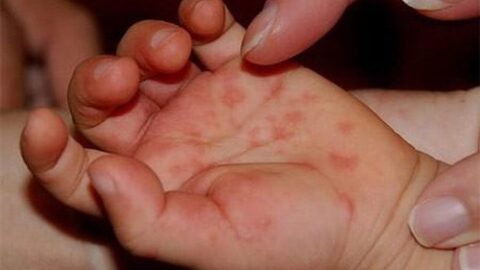Down syndrome is a genetic disorder in which a baby is born with an extra copy of chromosome number 21. What does this extra chromosome do to the baby? Does it run in families? A better understanding of Down syndrome can improve the lives of people with this life-long condition.

What is Down syndrome?
Down is a condition caused by an abnormality in the chromosomes. While a normal person has 23 pairs of chromosomes, a person with this disorder has an extra copy of chromosome 21. This abnormality impacts the baby’s development process mentally and physically. It is the most common chromosomal disorder that causes developmental delay, occurring in 1 of 800-1000 newborns.

People with this congenital disorder share similar facial and body features of:
- Flat face
- Small head
- Short necks
- Eyes that slant upward
- Small ears, hands, and feet
- Protruding tongue
- Weak muscle tone
- Short height
Moreover, they can face many health issues, such as:
- Heart defects
- Digestive problems
- Sleep apnea
- Obesity
- Spinal problems
- Dementia
Is Down syndrome inherited?
Down syndrome is a genetic condition caused by an error in cell division during the development process of the fetus. However, it mostly does not hold a hereditary component. The exception is when a parent carries translocation and passes it to the child. The good news is only about 3 – 4% of babies with this genetic disorder have translocation, and only some of them inherited it from one of their parents.
Risk elements
Some parents have more significant chances of having a Down syndrome baby. The factors include:
- Maternal age: Older eggs have a greater chance of unusual chromosome division. Therefore, the older the mother, the better her chance of giving birth to a baby with the extra chromosome 21.
- Genetics: A parent having a genetic translocation of Down syndrome can pass it on to their children.
- History: If the parents have had a child with the disorder or carry a translocation of Down syndrome, there is a high possibility that the next child will be born with the genetic disorder.
Prevention
There has been no treatment for Down syndrome. If you have any risk elements mentioned above, you should have a genetic counselor to help evaluate the chances of carrying Down’s gene before becoming pregnant. There are some preventive techniques you should know:
- It is recommended that you should make a careful decision about pregnancy when you are too old as the likelihood of this life-long condition continues to increase accordingly to women’s ages.
- You should follow a thorough health check during pregnancy that includes prenatal screening and diagnostic tests.
- You should have a premarital examination to ensure none of the parents carries a genetic translocation or has any genetic problems that might affect the future development of the fetus.
If you have a family member with Down syndrome, a better understanding of the condition will help enhance his or her physical and intellectual abilities to achieve the full potential. Having children with Down syndrome may also require extra attention in daily activities and regular medical care.











